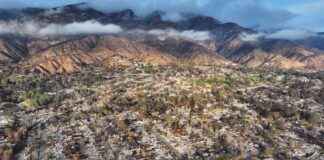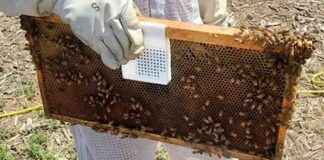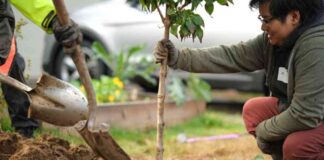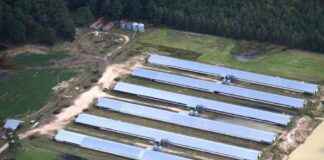A colossal new conservation initiative in the heart of the Democratic Republic of Congo (DRC) has recently sparked both excitement and concern among environmentalists and local communities. This project, known as the Green Corridor, was unveiled by DRC President Felix Tshisekedi at the World Economic Forum (WEF) and spans an impressive 2,600 kilometers from the conflict-ridden Virunga National Park to Kinshasa on the Atlantic coast. The Green Corridor is touted to become the largest protected forest area globally, encompassing essential carbon-sequestering forests within the Congo Basin.
President Tshisekedi has high hopes for this ambitious project, emphasizing its potential to safeguard pristine tropical forests, preserve unique biodiversity, and serve as a model for sustainable development. The Green Corridor aims to not only protect the environment but also stimulate economic growth by enhancing trade routes and promoting agricultural value chains. However, concerns have been raised regarding the exclusion of Indigenous people and local communities in the project’s planning and implementation phases, fueling fears of potential land conflicts and tensions.
Indigenous Voices: Lamenting Lack of Consultation
Indigenous and local groups in eastern DRC, such as the League of Indigenous Pygmy Associations of Congo, have expressed deep-rooted anxieties about the Green Corridor project. President Kapupu Diwa Mutimanwa highlighted the lack of consultation with native peoples and local communities, underscoring their worries about the project’s impact on their ancestral lands. The absence of meaningful engagement with those directly affected has stirred apprehensions about potential disruptions to cultural sites and livelihoods.
These sentiments echo the broader concerns raised by environmental organizations like Greenpeace Africa, which have criticized the project for overlooking the principle of community participation and potentially perpetuating neocolonial dynamics. The Green Corridor’s association with external funders and the European Union has raised questions about the project’s underlying motives and its alignment with local needs and priorities. As calls for inclusive decision-making grow louder, the importance of respecting Indigenous knowledge and rights in conservation efforts becomes increasingly apparent.
Expert Insights: Navigating Challenges and Opportunities
While the Green Corridor holds promise as a transformative initiative for the DRC, experts caution against overlooking critical considerations in its implementation. Tristan Smith, a professor specializing in energy and transport, has highlighted the need for sustainable solutions tailored to local contexts and long-term viability. Skepticism surrounds the project’s reliance on hydrogen-powered boats and solar logistics hubs, with concerns about practicality and efficiency overshadowing its green credentials.
Environmental analyst Daniel Makasi Mahamba and Rainforest Foundation UK’s executive director Joe Eisen have underscored the importance of ensuring that conservation projects like the Green Corridor genuinely benefit local communities. Mahamba’s observations from previous park initiatives emphasize the pitfalls of neglecting community needs and heritage, while Eisen’s call for participatory governance and green investments underscores the potential for positive outcomes if coupled with genuine commitment from authorities.
As the Green Corridor project unfolds, the delicate balance between conservation imperatives, economic development, and community empowerment remains a focal point of debate. The project’s success hinges on bridging the gap between lofty aspirations and grounded realities, with the voices of Indigenous groups, local communities, and environmental experts shaping its trajectory. By embracing a collaborative and inclusive approach, the Green Corridor has the potential to redefine conservation paradigms and foster sustainable development in the heart of the Congo Basin.
This marks an essential juncture in the journey of the Green Corridor project, where diverse perspectives converge to chart a course towards a more equitable and environmentally resilient future for the DRC and its inhabitants. The path ahead is fraught with challenges and opportunities, requiring a delicate balance of visionary leadership, community engagement, and ecological stewardship to navigate the complexities of conservation in a rapidly changing world.














